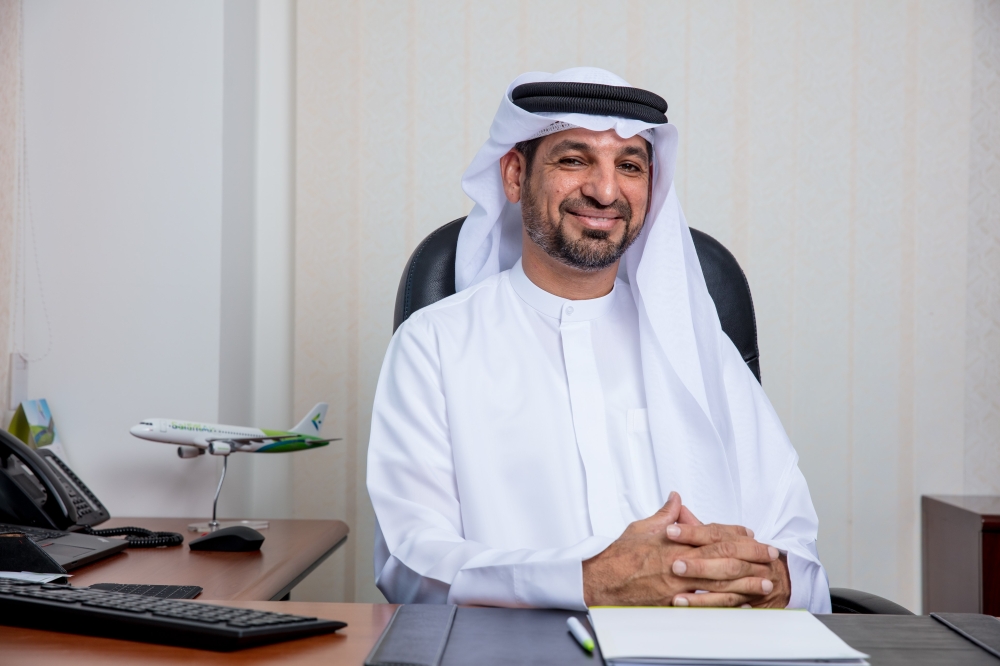
Muscat: Flying from Oman to India could soon be easier, as talks are underway to establish an ‘air bubble’ between the two countries.
According to the CEO of SalamAir, an air bubble will benefit airline operators flying to India, as the number of people flying there every week before the COVID-19 pandemic was quite high.
“This is on the table. I think the authorities are talking to each other and this might be implemented,” said Captain Mohammed Ahmed, on the subject of air bubbles between the two countries. “Even without the air bubble, we have been quite active, we almost had more than a daily flight to India.”
Commenting on when it is expected to be put in place, he added: “That, we cannot predict, because there are a lot of things involved in setting up an air bubble. I am sure the authorities are expediting these, but we will just have to wait and see until that happens.”
SalamAir has operated nearly 600 chartered planes to overseas destinations over the last three months, with many of them flying to India.
The airline is still working on securing permission to fly to India, with approvals for chartered flights to the country provided through diplomatic channels.
Ahmed said that once plans to fly to India were put into place, demand for seats on planes to cities across the Arabian Sea would be quite high.
According to data from the National Centre for Statistics and Information (NCSI), Indians make up a third of all expatriate workers in the Sultanate, with only the Bangladeshis forming a larger community among foreign nationals in the country.
As of July 2020, there are more than 540,000 Indian nationals and slightly more than 580,000 Bangladeshis working in Oman. In total, there are 1,542,069 expat workers in the country.
“Our aim is to eventually fly to all the destinations we used to before COVID, but that is impossible right now, as some airports are still closed,” explained Ahmed.
“Saudi Arabia, for example, is closed, so is Thailand, where we used to fly to Phuket. Knowing that, we hope we can go to new destinations. Here, India is among our first priorities.
The SalamAir CEO added: “In India, we know that there will be demand for whatever destination we fly to, because Indians are among the largest communities in Oman. We would like to get into that market, but we are still working hard on getting the traffic rights, as we do not have them yet. If we get the chance, we will definitely fly to South India, particularly Kerala...this is our priority, but I guess we will get to fly to airports in the different parts of India. This depends on the authorities, who will assign us which airports we can fly to.”
He went on to say that once air travel moved towards normalcy, the airline expects to have between five and seven flights a day to different destinations in India. Discussions on allowing SalamAir to operate regular planes to India are underway, and are expected to be resolved soon.
Explaining the procedure flights need to follow to secure permission to operate in other countries, Ahmed said, “Between any two countries, there is a bilateral agreement that allows a number of flights that can be flown by any airline from these countries. India does this a little differently: they assign a number of seats. There are about 20,000 seats allowed per week for flights from Oman. Now that we have registered, we have put in our application for seats.
“During the past few months, we managed to get our air operator’s certificate, with which we have the licence to fly to India,” he added. “All it needs now is for the air traffic agreement to allow us some seats. That is happening right now, and the moment it happens, we will not delay.”
With airports in Oman reopening on 1 October, Captain Mohammed Ahmed was hopeful that flying to the country would not need permission from the Ministry of Foreign Affairs to fly to Oman, a clearance that is now mandatory for all foreign arrivals.
“The Ministry of Foreign Affairs has been very cooperative with us, and we have brought thousands of people back,” he said. “We have staff dedicated on a daily basis to seek approvals from MoFA, and they have been very cooperative and have not delayed in providing them. I hope the good news from 1 October is that there will be no need for MoFA approvals, but there could be other checks in place.”
“No one knows what will happen in a few weeks’ time, because it depends on how we control our behaviour, and how this leads to the numbers being controlled,” added Ahmed. “There is no doubt it could go either way. There are so many countries – Australia being an example – where they reopened everything, and then had to close them again, after the numbers went up. I hope we do not get the second and third wave, but it is a good thing that the Supreme Committee doesn’t do anything on the basis of predictions, but on the basis of actual conditions.”